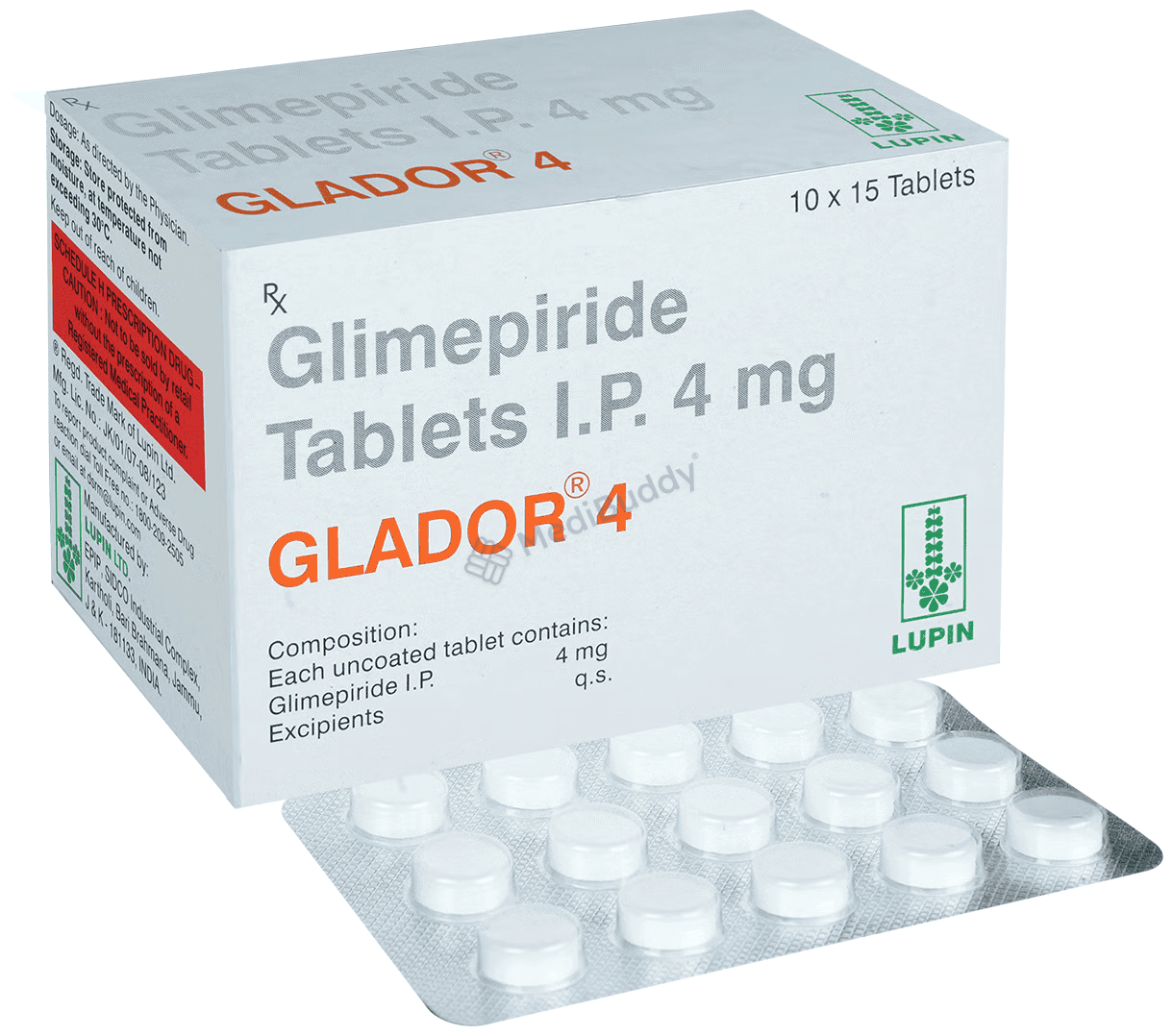Glador 4 Tablet
By Glador
Rx
15 Tablet in a Strip

Composition
Glimepiride(4mg)

Manufacturer - Lupin Ltd
Lupin Ltd, 3rd floor Kalpataru Inspire, Off. W E Highway, Santacruz (East), Mumbai 400 055. India

Expires on or after
July, 2027

liver
Glador 4 Tablet should be used with caution in individuals with liver disease. It may be necessary to adjust the dosage of Glador 4 Tablet in such patients, so it's important to consult your doctor before starting this medication. However, it is advised not to use Glador 4 Tablet in patients with severe liver disease. This is because these patients may be at risk of experiencing significantly low blood sugar levels, which could potentially normalize after a considerable period.

kidney
Glador 4 Tablet needs caution in kidney disease. Consult your doctor as dose adjustment may be necessary. Avoid in severe kidney disease to prevent very low blood sugar levels, which can normalize over time.

alcohol
It is not safe to drink alcohol while taking Glador 4 Tablet. Please avoid consuming alcohol with this medication.

driving
Do not drive if you experience symptoms of low or high blood sugar while taking Glador 4 Tablet as it may affect your ability to drive safely.

pregnancy
Glador 4 Tablet may not be safe to use during pregnancy. Animal studies indicate potential harm to the baby's development. Consult your doctor for a thorough evaluation before taking this medication.

breastfeeding
Glador 4 Tablet is probably unsafe to use during breastfeeding. Limited data suggests it may pass into breastmilk, potentially harming the baby. Monitoring the infant's blood glucose during maternal therapy is advised.
| Habit Forming | No |
| Chemical Class | Third-generation Sulfonylurea Derivative |
| Therapeutic Class | ANTI DIABETIC |
| Action Class | Sulfonylureas (Insulin Secretogogues) |
₹172.76
₹191.95
10% OFF
Inclusive of all taxes
Content verified by

Dr. Archana Prabhakar
MBBS, M.Med (Family Medicine)
Last update on 01-Oct-2024






